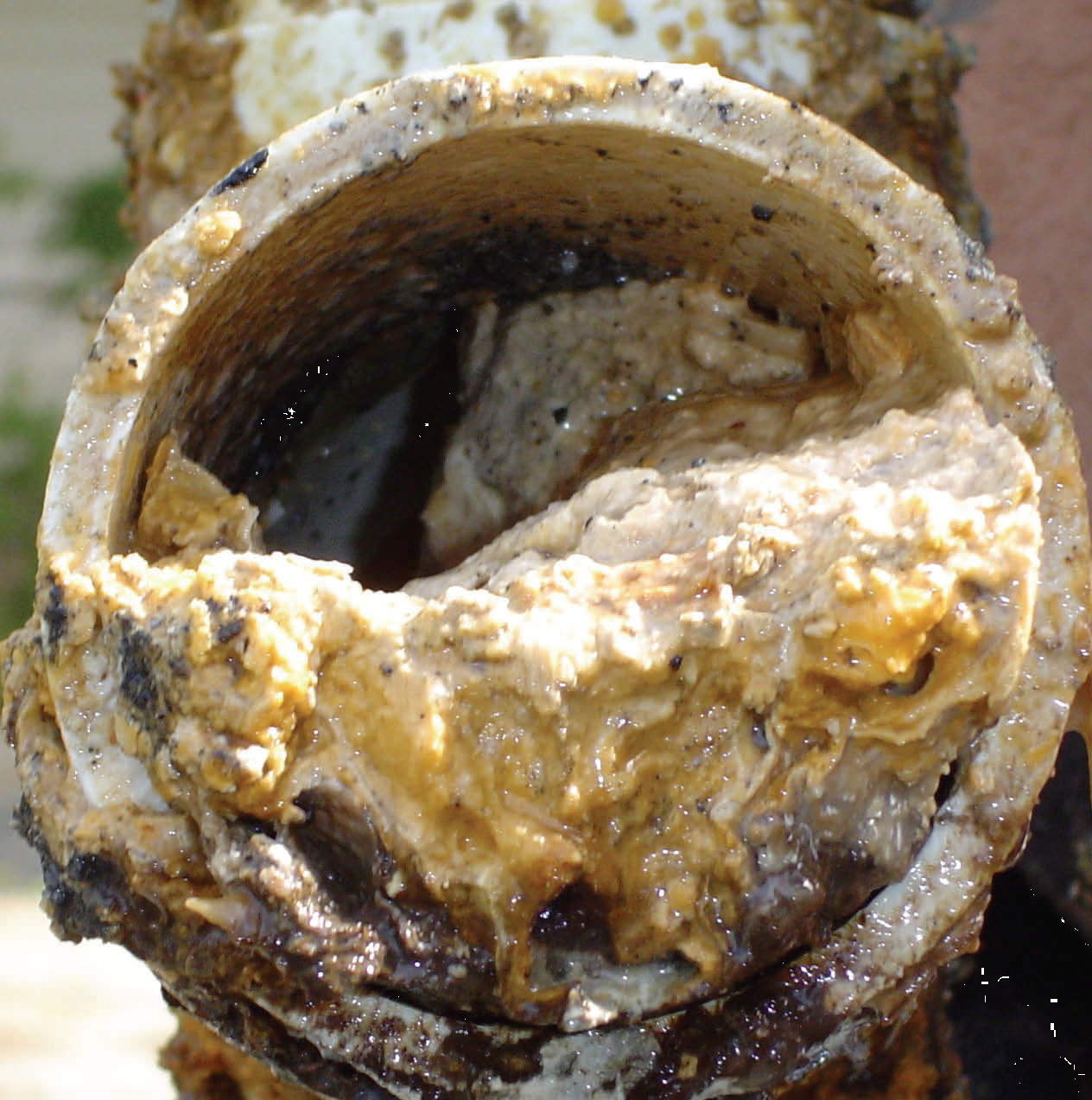



© 2013 Innovare4Water.com | All Rights Reserved.
Frequently
Asked
Questions
Questions
What do you know about restaurants?
Judith Marquez founded Innovare Environmental as a service to help improve existing programs to help restaurants properly dispose of used cooking oil, and help restaurants earn an additional source of revenue and save money in plumbing repairs and grease trap pumpings. She offers 15 years of experience in protecting water quality and implementing programs to prevent pollution to our waters. She has been helping restaurants with their BOH operations since 2009 to prevent the improper disposal of used cooking oil from restaurants—the fats, oils and grease more commonly referred to as "FOG".
No matter what city or state your restaurant is located, the law applies under the Clean Water Act, enacted to protect water quality everywhere, to keep us and our marine life safe from harm.
Why is it important to control our fats, oils and grease (FOG)?
Restaurants produce an average of 150 to 250 pounds of grease per week, up to 1,000 pounds per month, or 13,000 pounds per year. That's a lot of grease! This grease must be properly disposed of, and captured and recycled as much as possible, to both avoid having to deal with clogged pipes and the impending plumbing problems.
How can you help my restaurant become more green?
Ensuring compliance of restaurants in the management of their used cooking oil helps us all. Your customers can rest assured you're doing things to help the environment and not harm it. Greening your business could help you attract new customers and retain those loyal to your brand. It's smart, and an effective way to reduce your environmental footprint. Used cooking oil is a commodity, and you may be able to get credit for reducing your waste and for recycling it to be made into biomethane, a renewable fuel used in transport.The greenhouse gas savings for the use of
biomethane are great, and can be used to help your business in sustainability reporting.
In addition to protecting your brand's image, you protect the environment. And can earn green credits.
It isn't a question of if a sewer backup or overflow will occur—it's a
matter of when.
EPA estimates that there are at least 23,000 - 75,000 sewer overflows per year (not including sewage backups into buildings) in the U.S. and that almost half of those are grease-related from improper kitchen practices. The untreated sewage from these overflows can contaminate our waters, causing serious water quality problems, and potentially close beaches. It can also back-up into commercial and residential establishments, causing property damage and threatening public health. Judith works directly with you to reduce your potential risk of having a sanitary sewer backup into your restaurant, or an overflow outside into the environment. She helps you navigate the enforcement risks when they do occur.
How can you help us reduce our risk of a sanitary sewer backup or overflow?
Judith is able to educate restaurants in a manner that they understand and are comfortable with, and help management and staff understand the issue and how to control their FOG easily. They see her as an ally, even when the issue is messy and the enforcing authorities are bearing down on restaurant management and owners to mitigate the problem when it occurs.
She has been protecting water quality since 1998, and specialties include environmental compliance and enforcement. She is experienced in implementing programs to reduce risks associated with sewer functionality and overflows, and has worked directly for the various regulatory agencies who are after you to comply, including municipalities, utilities, and the California Environmental Protection Agency (Cal EPA).
She is able to provide valuable insight into the programs behind the scenes that protect our most valuable resource—water.
Judith Marquez founded Innovare Environmental as a service to help improve existing programs to help restaurants properly dispose of used cooking oil, and help restaurants earn an additional source of revenue and save money in plumbing repairs and grease trap pumpings. She offers 15 years of experience in protecting water quality and implementing programs to prevent pollution to our waters. She has been helping restaurants with their BOH operations since 2009 to prevent the improper disposal of used cooking oil from restaurants—the fats, oils and grease more commonly referred to as "FOG".
No matter what city or state your restaurant is located, the law applies under the Clean Water Act, enacted to protect water quality everywhere, to keep us and our marine life safe from harm.
Why is it important to control our fats, oils and grease (FOG)?
Restaurants produce an average of 150 to 250 pounds of grease per week, up to 1,000 pounds per month, or 13,000 pounds per year. That's a lot of grease! This grease must be properly disposed of, and captured and recycled as much as possible, to both avoid having to deal with clogged pipes and the impending plumbing problems.
How can you help my restaurant become more green?
Ensuring compliance of restaurants in the management of their used cooking oil helps us all. Your customers can rest assured you're doing things to help the environment and not harm it. Greening your business could help you attract new customers and retain those loyal to your brand. It's smart, and an effective way to reduce your environmental footprint. Used cooking oil is a commodity, and you may be able to get credit for reducing your waste and for recycling it to be made into biomethane, a renewable fuel used in transport.
In addition to protecting your brand's image, you protect the environment. And can earn green credits.
EPA estimates that there are at least 23,000 - 75,000 sewer overflows per year (not including sewage backups into buildings) in the U.S. and that almost half of those are grease-related from improper kitchen practices. The untreated sewage from these overflows can contaminate our waters, causing serious water quality problems, and potentially close beaches. It can also back-up into commercial and residential establishments, causing property damage and threatening public health. Judith works directly with you to reduce your potential risk of having a sanitary sewer backup into your restaurant, or an overflow outside into the environment. She helps you navigate the enforcement risks when they do occur.
How can you help us reduce our risk of a sanitary sewer backup or overflow?
Judith is able to educate restaurants in a manner that they understand and are comfortable with, and help management and staff understand the issue and how to control their FOG easily. They see her as an ally, even when the issue is messy and the enforcing authorities are bearing down on restaurant management and owners to mitigate the problem when it occurs.
She has been protecting water quality since 1998, and specialties include environmental compliance and enforcement. She is experienced in implementing programs to reduce risks associated with sewer functionality and overflows, and has worked directly for the various regulatory agencies who are after you to comply, including municipalities, utilities, and the California Environmental Protection Agency (Cal EPA).
She is able to provide valuable insight into the programs behind the scenes that protect our most valuable resource—water.
We keep restaurants out of hot water.
"Judith worked in tandem with our
wastewater department to ensure
commercial establishments including
restaurants were in compliance with
discharge requirements limiting Fats, Oils
and Grease (FOG) to the sanitary sewer
collection system. Her extensive
knowledge of kitchen best practices
allowed her to effectively educate
dischargers to minimize the amount of
FOG they contributed to our system. This
helped our system to operate more
efficiently, and avoid many sewer backups
and overflows due to blockages from
grease." - Dorien McElroy, Wastewater
Supervisor, City of Huntington Beach, CA
"She approached her assignment at the
city, and the occasional request from
Cal/EPA Regional Board with passion
and vigor. We appreciated her
dedication and devotion to protecting
the environment." - Stephen D. Mayville,
RCE, Chief, Enforcement and Dairy
Units, Regional Water Quality Control
Board, Santa Ana
Testimonials




